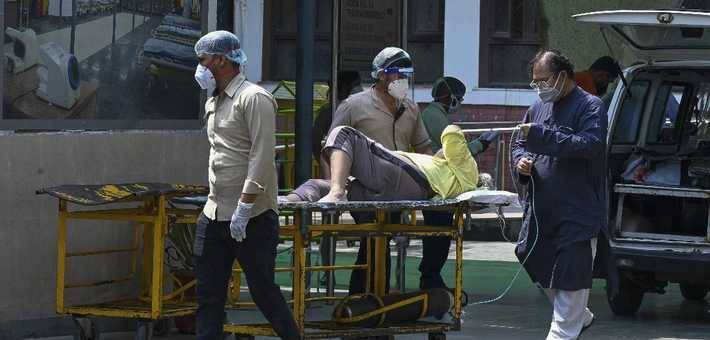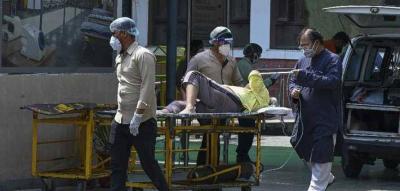A Russian woman underestimated the coronavirus and intentionally transmitted it to herself and her family, resulting in serious complications and her eventual death. This was announced by Pavel Brand, the medical director of the "Fanily" clinic, on social media platform Facebook.
In his post, he shared correspondence revealing that a classmate, now 42 years old, desired to transmit the virus "in a mild form" to her entire family, driven by the belief that experiencing the illness mildly was associated with a light infection. The messages disclosed that the woman and her two daughters visited a sick friend, leading to all family members, including the husband, contracting COVID-19.
The woman fell seriously ill but refrained from seeking medical help for a prolonged period and later died in the hospital. The correspondence mentioned that her younger daughter has currently exited intensive care, while her husband and older daughter are experiencing mild COVID-19 symptoms.
Doctors emphasize that vaccination is a reliable method for preventing COVID-19 infection. Additionally, Russian President Vladimir Putin approved a nationwide work shutdown for a week at the beginning of November to combat a concerning rise in COVID-19 fatalities and infections.
During a televised meeting with government officials, Putin stated that the work suspension, which begins on October 30 and extends to November 7, could start earlier or be extended in specific regions. He urged residents to get vaccinated to try to mitigate the deadly wave of the COVID-19 pandemic.
On Wednesday, Russia recorded a new record high of 1,028 COVID-19 related deaths in the past 24 hours, according to government figures, which also noted 34,073 new infections. Since June, Russia has faced a pandemic wave that authorities have failed to control, largely due to the rapidly spreading Delta variant, a slow vaccination campaign, and weak health restrictions.
Following a government meeting focused on the epidemic, Putin announced a paid leave from October 30 to November 7 for residents in Russia to attempt to contain the deadly COVID-19 wave. He proposed starting the leave period earlier or extending it, with each region deciding based on the severity of its outbreak.
Putin also called on non-compliant Russians to get vaccinated, stating, "Please, be responsible... there are only two ways to exit this pandemic: either we get sick, or we get vaccinated." He described the low vaccination rates in Russia as "dangerous."
Putin has previously ordered several paid leave periods in an effort to curb the pandemic, sometimes extending these short breaks to long weeks. He has often preferred this approach to restricting people's movements to halt virus spread rather than imposing unpopular lockdowns that could hinder fragile economic recovery. However, it seems that the Kremlin, which had previously allowed regions the freedom to implement their health measures, has finally succumbed to the necessity of taking action against the deteriorating epidemiological situation.




